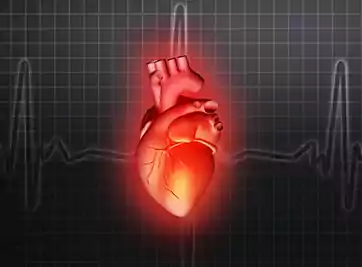
Heart
What Causes Heart Attacks? An Astonishing Truth!
Sep 27, 2017Every now and then, we come across headline news about a champion endurance runner dropping dead during a race. “Must’ve pushed himself too hard in the heat”, we say, and move on. If we pause just a little longer, there’s a bigger story, as large as the titanic, hiding just below the surface of the runner’s untimely death.
This happened to me a while back, when I read about a medical doctor who was also a marathoner. He had completed a quote*unquote*thorough physical exam, including CT imaging of his cardiac arteries. They were clean a whistle, he was told, so he was good to go. The good doc did, and halfway through the distance, paid for it with his life. Cause of death: Massive Heart Attack.
If his arteries were clean, not clogged, and clogged arteries cause heart attacks, how come he died of a heart attack?
The answer quite simply is – clogged arteries are not what cause heart attacks. Something else does.
Clogged Arteries: Not The Real Reason Behind Heart Attacks
The clogged artery theory is a relatively new invention in science. It was set in motion after the Father of modern cardiology, Dr.William Harvey proposed in 1647 the idea that the heart was a “pump”, that supplied fresh blood to all parts of the body, including itself. Since fresh blood to the heart had to come in through the cardiac arteries, if this path was “blocked”, the heart would not have the fuel it needed to do its work, leading to a heart attack.
This analogy made seemed to charm doctors and lay people alike – it had a nice visual appeal. And once industry began to invest big money into “unclogging” arteries, there was no looking back.
Worldwide, cardiac bypass surgery, to bypass clogged portions of arteries and stenting, used to balloon open arteries that are clogged, accounted for several billion dollars in sales last year. That’s without taking into account the hospital stays and incidentals.
So it’s hardly surprising that when Dr. Knut Sroka, a cardiologist in Germany proposed a different explanation for why heart attacks happen, a non-clogged pipes theory, big pharma did everything it could to bury his research.
When Arteries Get Clogged, Nature Builds Its Natural Bypasses
Dr. Sroka went back to the scientific literature and pointed out that the heart was never starved of oxygenated blood, even during a heart attack. This is because when any main cardiac artery clogs over time – which is to say there is build up of plaque in the cardiac artery due to various factors – nature simply builds its own natural bypasses for such an artery. These bypassses ensure that the heart is never short of fresh oxygenated blood for its own functioning. These are called collateral arteries and the body is able to build them within as less a time period as just 3 days!
If you go to youtube and type “heart attack knut sroka”, you can see this really cool video where the doctor shows a major cardiac artery that is supposed “clogged” 99%. You can clearly see the abundant blood flow on either sides of the blockage. What this means is that if you the dial up the power of the CT scanner, to visualize smaller blood vessels too, you would see these really thin “collateral arteries.” You will find these arteries naturally bypassing the blocked part of the main artery and carrying fresh blood past the blockage, to the other side.
There’s so much more to be said on this, but in the interest of time, let’s say we move to the second point of this podcast. What actually causes heart attacks and how can you protect yourself?
What Causes Heart Attack: The Real Reason Explained
Dr. Sroka, his colleagues, and other researchers have subsequently found that the one factor common before most heart attacks is the loss of something called Heart Rate Variability. It measures the ability of the heart to respond to stress – both physical and emotional – and can even be measured at home, with a chest strap, a smartwatch or phone and a piece of software that costs $5 a year.
Researchers have found that the heart has a great ability to tolerate stress over short periods of time. It can beat faster and harder when you need it to, as long as it gets to rest afterwards. However, if you’re chronically under stress – like marathon runners often are, since they often don’t give their bodies enough time to recover from strenuous training – the heart loses some of this ability to relax.
Over time, this loss of flexibility adds up, and finally, it takes one physical or emotional stress event to push them over the edge. The heart, which is a muscle, has too much lactic acid built up. And much like your calf muscle after an unaccustomed run, it goes into a spasm. And that’s what causes a heart attack.




